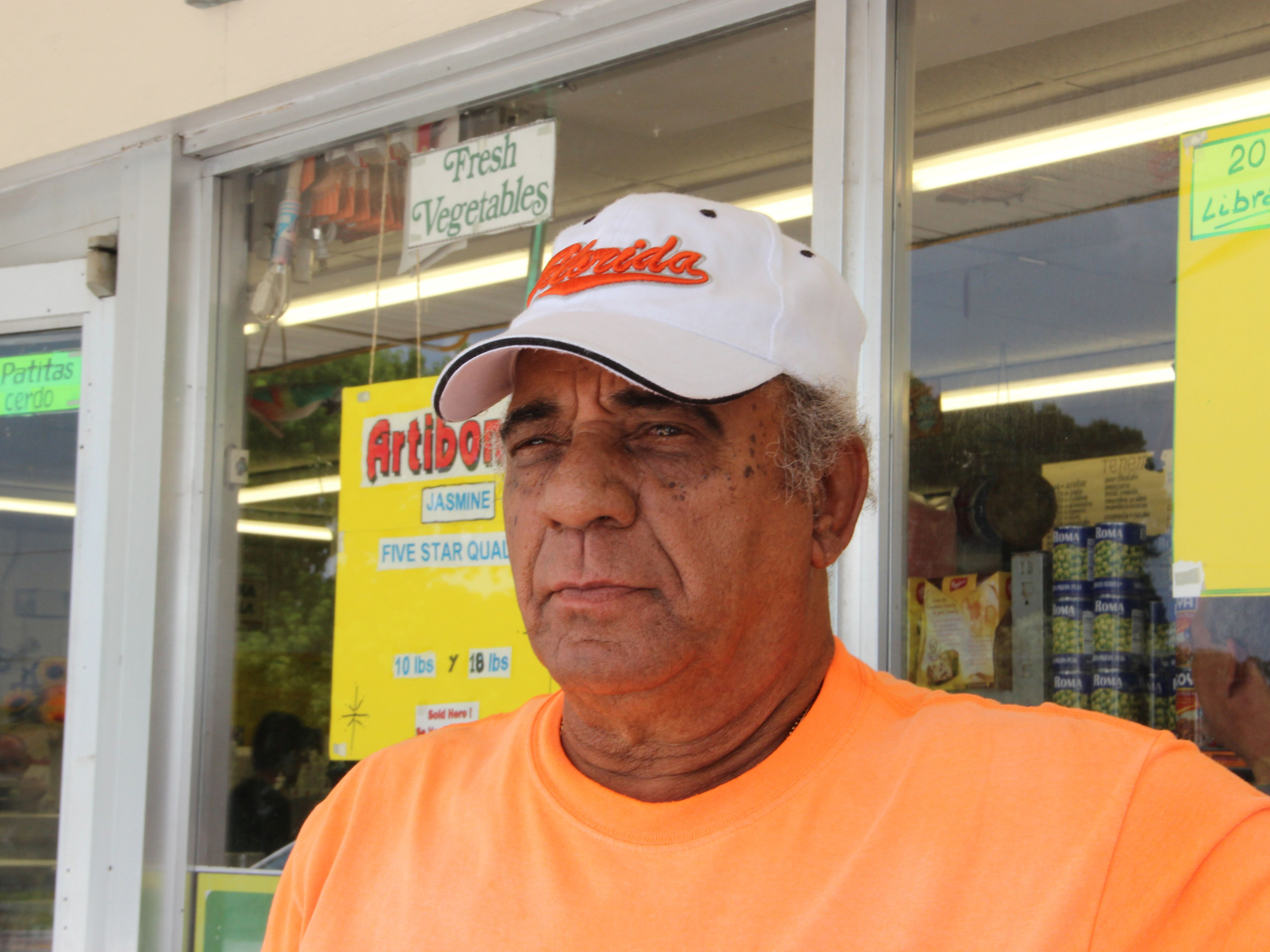When Isidro Cobas was about 15 or 16 years old in Santiago de Cuba, a friend asked if he wanted work as a taxi driver. He readily snagged the job — the moment, Cobas said, began one of his happiest times in Cuba.
“In Cuba, there’s no application. It’s through recommendation… and I began working there until I arrived here,” the 68-year-old said as he stood inside Orlando Latin Market.
Cobas spoke vividly of his time as a taxista.
“There were 55 of us chóferes (drivers) — and we all got along,” he said. “Working from 7 a.m. to 3 p.m., another shift from 3 p.m. to 11 p.m. and another shift from 11 p.m. to 6 in the morning — and that’s how we spent all week.”
The experience was good, Cobas said. In Cuba, the radio used by taxi drivers is called “la planta.” Cobas said he and other drivers would get dispatched to locations through that. He’d drop his customers all over — at home, at the hospital. Cobas knew the area by heart, having spent most of his time driving up and down Cuba’s second largest city.
He laughed when asked if he uses taxicabs here in the U.S.
“No, no. It’s expensive,” he said. “Here, you need a car — or bus.”
